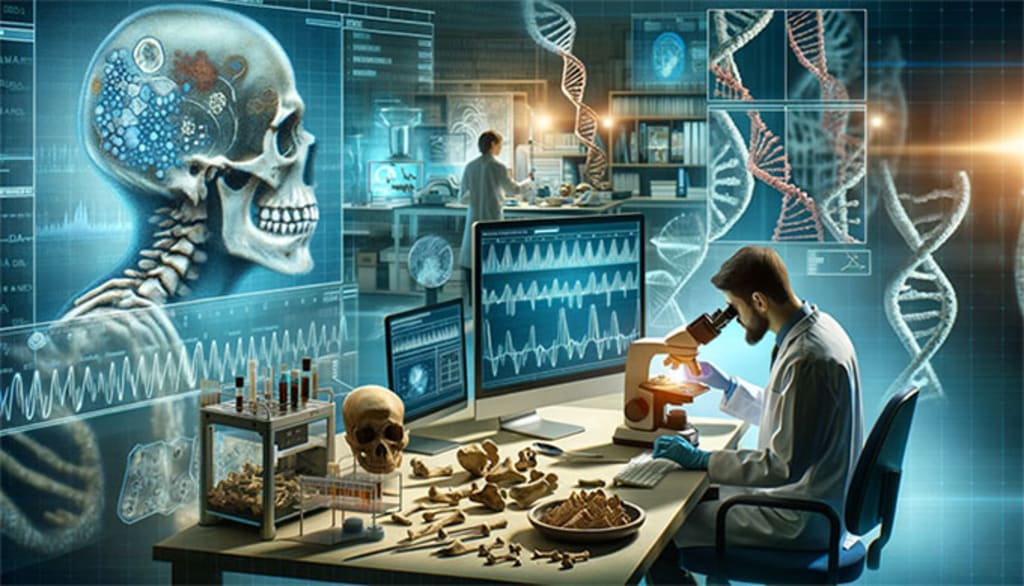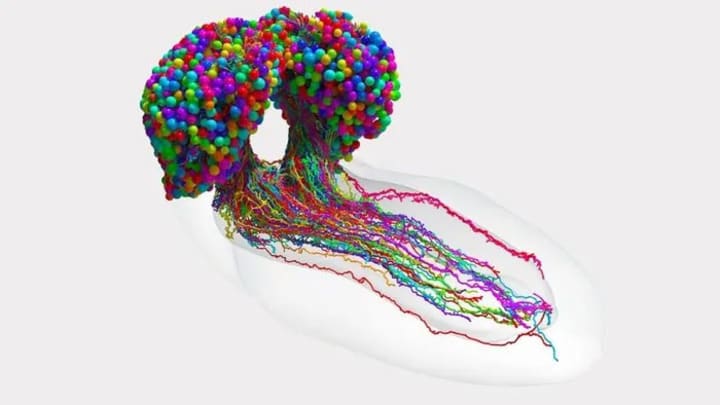Medical Breakthroughs in 2023
In 2023, many breakthrough treatments were approved. In 2023, many breakthrough treatments were approved, such as CRISPR gene editing technology to treat genetic blood disorders or drugs to slow Alzheimer's disease.

In 2023, many breakthrough treatments were approved.
In 2023, many breakthrough treatments were approved, such as CRISPR gene editing technology to treat genetic blood disorders or drugs to slow Alzheimer's disease.
1. CRISPR-based gene therapy
In November, the UK Medicines and Healthcare products Regulatory Agency (MHRA) approved the use of CRISPR therapy to treat two inherited blood disorders, the first approved treatment in the world using CRISPR gene editing technology.
Called Casgevy , the CRISRP approach treats sickle cell disease (SCD) and transfusion-dependent beta-thalassemia, lifelong genetic disorders caused by mutations in the gene that codes for hemoglobin, a protein that red blood cells need to carry oxygen throughout the body.
Casgevy will repair the defective BCL11A gene in the patient’s bone marrow stem cells so that they can produce normal hemoglobin. To do this, hematopoietic stem cells are taken from the patient’s bone marrow and the BCL11A gene is edited in the lab by Casgevy, then infused back into the patient. This approach has the potential to cure the patient for life with a single treatment.
Currently, this is just the first of dozens of potential treatments for other genetic diseases such as cancer or infertility.
2. Drugs that slow down Alzheimer's disease
In 2023, the U.S. Food and Drug Administration (FDA) approved Leqembi (lecanemab-irmb) , the first drug to slow the progression of Alzheimer’s disease. It is the first fully approved Alzheimer’s treatment in 20 years. The FDA deemed the drug “clinically meaningful” for Alzheimer’s, which affects more than 6.5 million Americans.
Research data shows the drug can slow the progression of Alzheimer's disease by up to 27% over 18 months.
When amyloid protein appears abnormally in the brain, it forms sticky plaques, causing inflammation and damaging nerve connections. The accumulation of amyloid plaques causes memory loss in Alzheimer's patients. Therefore, the mechanism of action of Leqembi is to remove amyloid plaques from the brain, slowing the progression of the disease.
3. Opening the way for infertility treatment
In March 2023, Japanese scientists announced the achievement of giving birth to baby mice from two male mice by creating eggs from male cells.
Accordingly, scientists reprogrammed the skin cells of male mice to resemble stem cells and then implanted them into the uterus in a culture system that simulates the conditions inside the mouse uterus. The eggs can be fertilized with normal sperm. Then, the fertilized eggs are transferred to the surrogate female mouse.
Scientists collected about 600 embryos, resulting in seven baby mice. These appeared healthy, had a normal lifespan, and gave birth to offspring as adults.
The results suggest that viable human eggs could be created from male skin cells within the next decade. The achievement could help treat severe forms of infertility, as well as offer hope to gay couples who want to have children together in the future.
4. The first complete map of the insect brain
After 12 years of meticulous work, in March 2023, a research team of 20 scientists from the UK, US, and Germany published a complete map of the brain of a fruit fly larva, showing all the nerve cells (neurons) and synapses. The map shows that cells can send chemical messages to each other, thereby triggering electrical signals to travel through the cell's pathways.
This result is quite impressive because previously, people have only built brain maps of roundworms, sea squirts and sea worms. Each map contains only a few hundred connections. The fruit fly brain map is a map of the complete connection system.
The neural circuits in the fly brain look a lot like neural networks in machine learning. Understanding the similarities and complexities of the fly brain’s connectome could help decipher how the human brain works and how neurological diseases develop. The brain also opens up opportunities for many future advances, especially in new technologies like machine learning and artificial intelligence (AI).

Map of neuronal and synaptic assemblies in the brain of a fruit fly larva.
5. AI identifies risk of pancreatic cancer
An artificial intelligence (AI) tool has successfully identified people most likely to develop pancreatic cancer up to three years before their actual diagnosis, potentially opening up more opportunities for successful treatment and increased survival.
Pancreatic cancer is currently one of the most dangerous cancers in the world. The disease is often diagnosed only at an advanced stage, so treatment is less effective and most patients die. The number of people with this disease is expected to increase in the future.
However, symptoms of early-stage pancreatic cancer are easily misdiagnosed, but many patients can live longer if the cancer is detected early. So scientists trained an AI algorithm on the medical records of 6.2 million Danes over 41 years to detect hidden patterns in the records of 24,000 patients who later developed pancreatic cancer.
The AI model analyzed the combination of these disease codes and their timing. By comparing specific sequences of conditions before a pancreatic cancer diagnosis, the AI model identified people at highest risk of developing the disease. The AI was even able to predict accurately even when the disease codes, symptoms, and timing were not directly related to the pancreas.
In this way, the AI finds people at highest risk of pancreatic cancer. Doctors will then request a diagnosis to detect the disease early and treat it promptly. Common symptoms of pancreatic cancer include jaundice, pain in the middle back and upper abdomen, weight loss, itchy skin, and fatigue.
About the Creator
HK Decor
Telling stories my heart needs to tell <3 life is a journey, not a competition
If you like what you read, feel free to leave a tip,I would love some feedback
https://sites.google.com/view/hk-decor/trang-ch%E1%BB%A7
Enjoyed the story? Support the Creator.
Subscribe for free to receive all their stories in your feed. You could also pledge your support or give them a one-off tip, letting them know you appreciate their work.






Comments
There are no comments for this story
Be the first to respond and start the conversation.